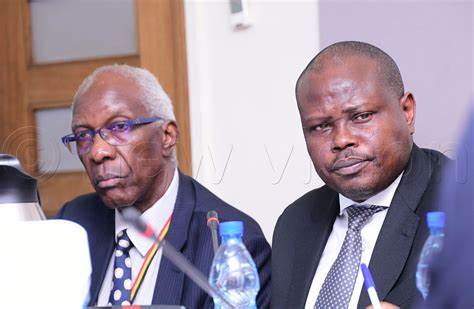By AGGREY BULUBA
Kampala, Uganda – The Auditor General’s 2023/2024 report offers a sobering reality check, exposing inefficiencies, waste, and mismanagement that threaten Uganda’s stability under President Museveni’s administration. Despite the government’s repeated promises of transformation and accountability, the report paints a picture of unfulfilled commitments, squandered resources, and systemic failures.
Budgetary Shortfalls and Unused Funds
The government initially planned an ambitious UGX 52.7 trillion budget, later revised to UGX 61.7 trillion. However, only UGX 47.11 trillion was realized in revenue, leaving a UGX 9.13 trillion shortfall. Alarmingly, UGX 1.49 trillion of the allocated funds went unspent—an unpardonable waste in a country where roads crumble, hospitals lack essential equipment, and schools face overcrowding.
Missed opportunities were rampant. Of 1,028 planned outputs in ministries, departments, and agencies (MDAs) worth UGX 6.83 trillion, only 47% were fully implemented. The remainder were either partially completed or abandoned, highlighting chronic inefficiencies in public sector management.
Local Government and Project Delays
At the local level, delays and poor planning further compounded the challenges. Forty-five projects worth UGX 52.39 billion were delayed by up to 32 months, affecting critical infrastructure such as roads, schools, and health facilities. For a government that touts “steady progress,” such delays reflect a troubling gap between rhetoric and reality.
Health Sector Mismanagement
The health sector exemplifies the scale of waste and inefficiency. Drugs worth UGX 316.65 billion expired in 2023/2024, marking an 860% increase from the previous year. This wastage included COVID-19 vaccines, antiretroviral drugs, and testing kits—vital supplies in a nation where hospitals frequently run out of medicine. Poor inventory management, overstocking, and delayed deliveries were identified as the root causes, underscoring systemic neglect.
Energy and Rural Development Disparities
Despite Uganda’s impressive 2,005 MW electricity generation capacity, nearly half remains unused due to low demand. Rural areas, where 64% of the population resides, remain largely disconnected, with only 36% having access to electricity. This disconnect between supply and demand highlights a failure to prioritize equitable development.
Debt Mismanagement
Uganda’s external debt rose to UGX 54.36 trillion in 2023/2024. While borrowing can support development, UGX 1.89 trillion in loans went unutilized, leading to UGX 73.9 billion in unnecessary commitment fees. This inefficiency represents a significant loss of resources in a country that desperately needs effective financial management.
Flaws in Flagship Programs
The Parish Development Model (PDM), designed to empower grassroots communities, is riddled with irregularities. Of UGX 1.059 trillion allocated, funds were disbursed late or inconsistently, and some SACCOs failed to receive their allocations. UGX 286 billion remains unaccounted for, while disbursements outside planting seasons rendered the program ineffective. These failures expose a program that prioritizes political optics over tangible results.
Education Sector Shortcomings
Discrepancies in student enrollment data have led to funding gaps in schools, with some receiving far less than required while others were overfunded. A lack of proper tools and training for school administrators exacerbates these issues, leaving students to suffer the consequences of poor planning.
A Call to Action
The Auditor General’s report underscores systemic issues of waste, inefficiency, and mismanagement that threaten Uganda’s development and stability. While the government continues to promote its achievements, the report reveals a leadership out of touch with the everyday struggles of its citizens.
Incomplete infrastructure, underfunded health systems, and neglected schools are symptoms of deeper governance failures. Uganda must prioritize accountability, transparency, and effective service delivery to address these challenges. The report is more than a critique—it is a wake-up call. Whether the government heeds this warning remains uncertain, but one thing is clear: Uganda deserves better.








Discussion about this post